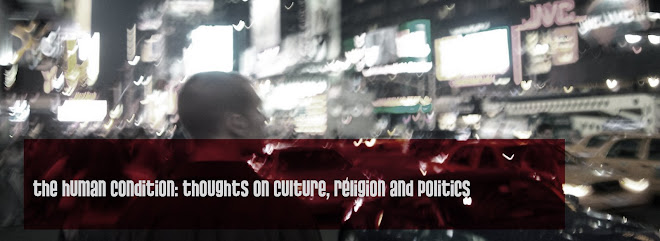I think I was set up. My friend Jason didn't tell me much about this refugee he hooked me up with to interview for my interviewing class. I contacted Jason, who volunteers working with refugees, because I needed to interview someone from a diverse cultural background. I figured a refugee who just arrived from Africa would be more interesting than my Hispanic co-worker who's lived here all her life. When Jason gave me the email of a refugee he knew who would be a "perfect candidate," all he told me was his name, age and that he'd been in the U.S. for a little over a year.
I contacted this refugee, and we made plans to meet up. I showed up at his place Monday morning. There was no where for us to talk inside the place he lived so we just sat in my car. My first question was where he was from and how, and why he came to America. I was taken aback by his answer, "I'm from Rwanda and in 1994..." Jason didn't tell me I was going to be talking to a survivor of the infamous Rwandan genocide, which was the backdrop for the movie Hotel Rwanda. And I'm not sure, but I have a feeling Jason purposely didn't inform me because he wanted me to be surprised. For over an hour, this refugee recounted his entire experience during this historic event. My brain couldn't keep up. Aside from knowing a lot of people died and that the conflict was between the Tutsis and the Hutus, I knew nothing about it. He explained, not only his story, but all of the cultural and political factors behind it. I could not believe that he is only 20, and that he was 7 when this happened.
For me, this was not only an interview; it was a sacred experience. Almost every day we hear about people dying on the continent of Africa. Just recently, in Zimbabwe, Robert Mugabe brutalized those who opposed him in Zimbabwe's presidential election. Millions have died of AIDS. Talking with this refugee, I couldn't help but to repeatedly think that this incredibly intelligent, talented and friendly person with so much potential, could have been just another statistic. And then I realized that every time I hear about all the people dying in Africa, that they are people just like him. I think we tend to believe that because they live in Africa, they are used to disease and death, and that, for them, it's just a part of life to have loved one's die. We think they're so different than us.
Lastly, I realized that, like John McCain's economic advisor, who doesn't speak for him, said "we are a nation of whiners." Ok, in our context, we have reason to whine, but in the global context... I realize that meeting people who have had it much harder always elicits feelings of shame for complaining and taking things for granted. But maybe we need people like this refugee to come here, thankful just to be alive, and teach us how to be happy and grateful in our comfortable, overly-stimulated, choice-laden existences. And, perhaps, we need these people to show what is possible, inspiring us to be better human beings. It's interesting how when the rich and famous encounter the people of Africa, they end up becoming crusaders for saving this continent on fire. And maybe as our country continues to engage with them, some salvation will come to us as well.
So if you're reading, thanks Jason.

4 comments:
I would be interested to know, what were his thoughts on America? How does he judge his new home? Are we a fundamentaly fair nation, from his perspective? Are we currently a land of opportunity or a land of oppression?
I bet he could open our eyes to just how blessed we really are...
Great post.
i didn't get to ask him too much about his take on america, unfortunately. he did say americans are very nice, and he talked very positively about the fact that we have public schools and social programs. he was surprised that education was free.
i can't take full credit for the set-up, but i'm glad you were able to interview JP. I knew his background which is why I recommended him, but i didn't intentionally withhold the info from you! I think I thought you knew some of his background going in to it. None-the-less, it sounds like it was a positive experience. Do you have to write a paper based on the interview? If so, I'd love to read a copy (JP, too).
you can read it if you'd like. it's pretty much everything i said in this post. it could only be one page, so i barely used anything i wrote down in my notes.
Post a Comment